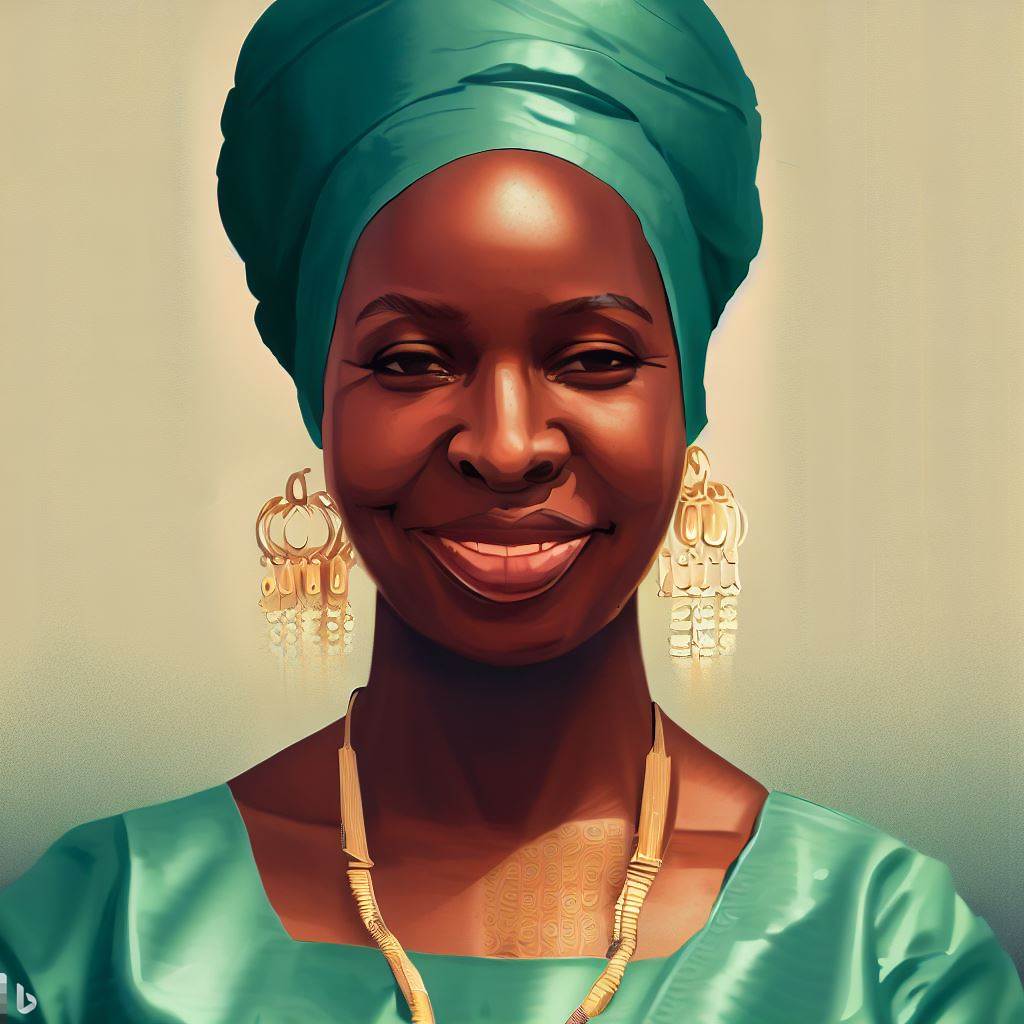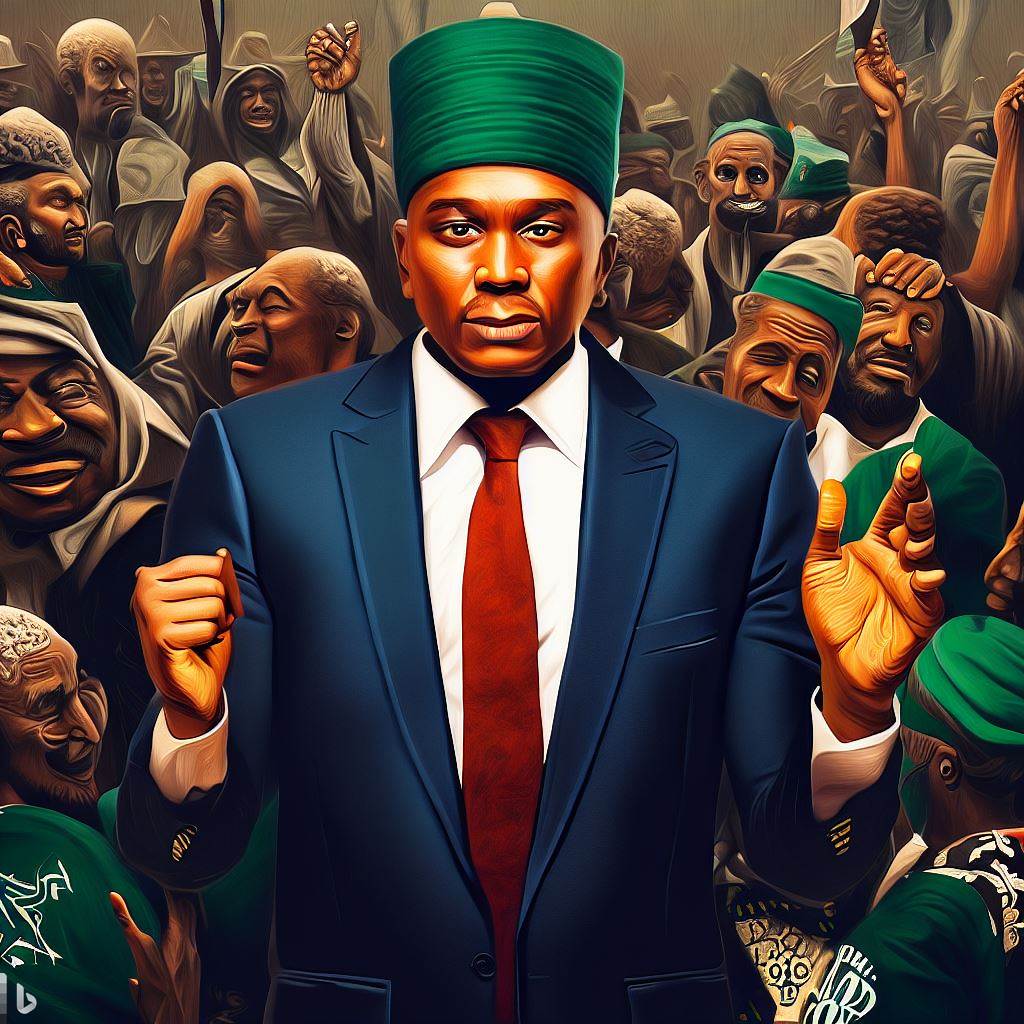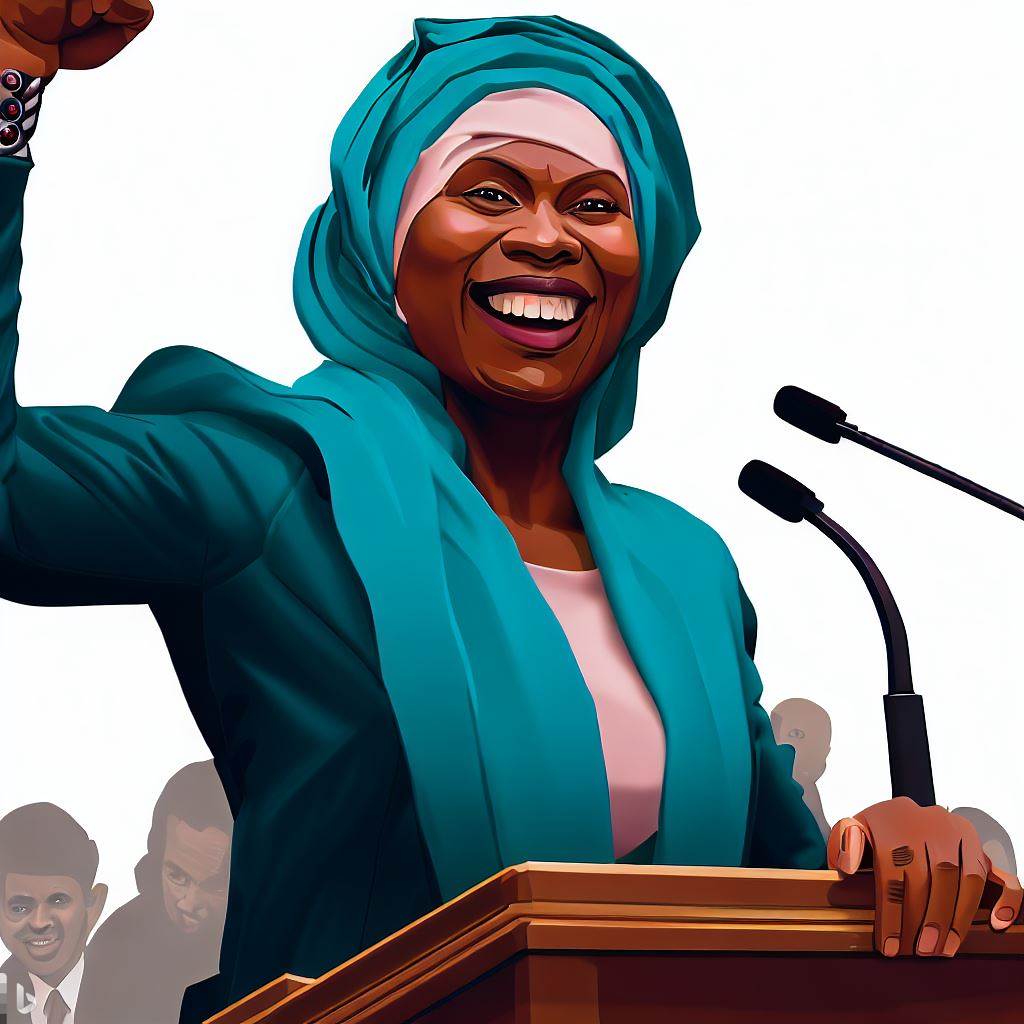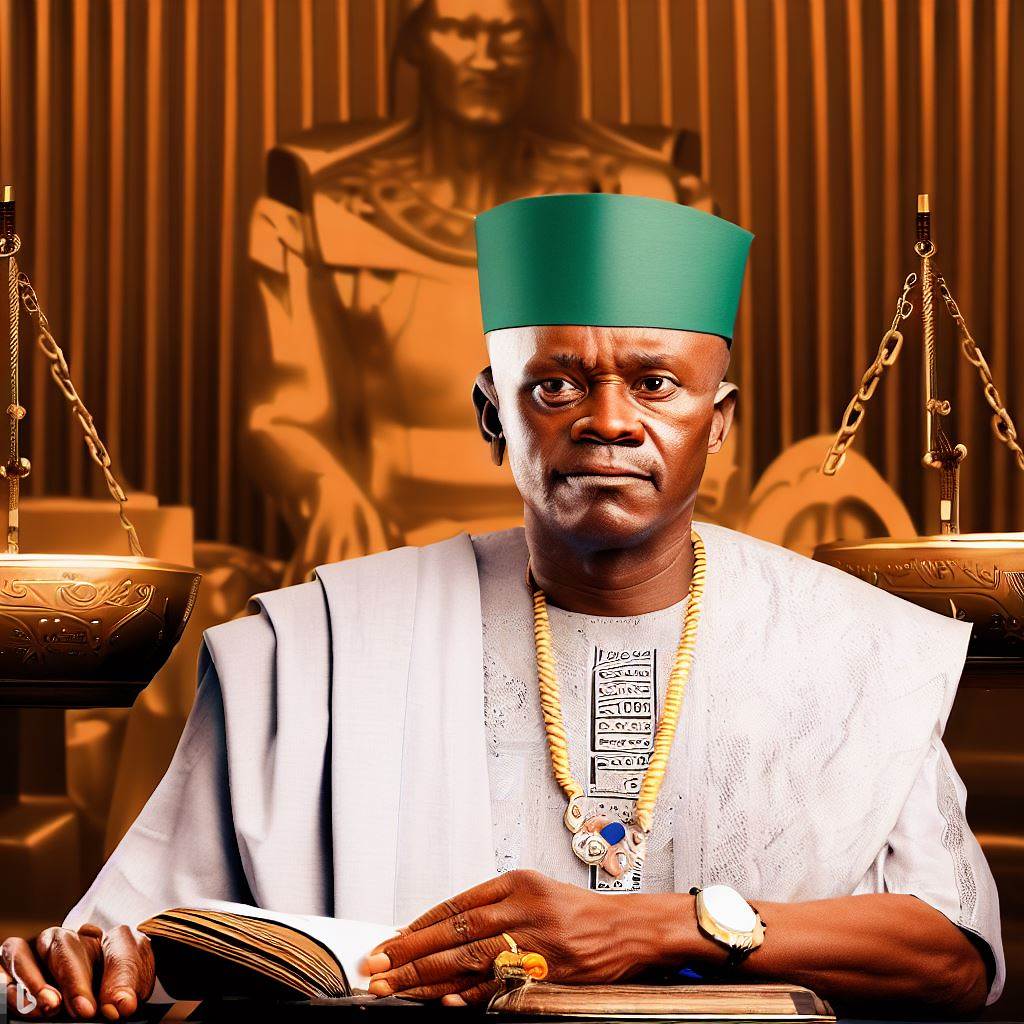Introduction
Politics plays a pivotal role in Nigeria, and aspiring politicians seek the path to make a positive impact on the country.
Understanding the process of becoming a politician in Nigeria is essential for those who have the desire to serve their nation.
Understanding Nigerian Politics
The political system in Nigeria
Nigeria’s political system is a federal republic with a presidential system of government. It is a multi-party system with a constitutional framework.
Overview of the different levels of government (federal, state, local)
At the federal level, the government consists of three arms: the executive, legislative, and judiciary. The President, who is the head of state and government, is elected by the citizens of Nigeria.
The executive branch is responsible for implementing and enforcing laws. It is composed of the President, Vice President, and the Council of Ministers or Cabinet.
The President is elected for a maximum of two four-year terms. The legislative arm comprises two houses: the Senate and the House of Representatives.
The Senate consists of 109 members, while the House of Representatives has 360 members. They make laws and act as a check on the executive branch.
The judiciary is the third arm of the government and is responsible for interpreting and applying the laws.
It includes the Supreme Court, Court of Appeal, and other lower courts. The judiciary ensures the adherence to the rule of law.
Apart from the federal level, Nigeria is divided into 36 states and a Federal Capital Territory. Each state has its own government, with a Governor as the chief executive.
State governments have similar structures to the federal government, including executive, legislative, and judicial arms.
At the local level, Nigeria is further divided into 774 Local Government Areas (LGAs).
These LGAs have their own governance under the supervision of the state governments. Local government chairpersons lead the LGAs.
The main political parties in Nigeria
Turning to political parties, there are several major political parties in Nigeria. The ruling party is the All Progressives Congress (APC), formed in 2013.
It is a merger of three main opposition parties. The APC has gained prominence in recent years and currently holds the presidency.
On the other hand, the main opposition party is the People’s Democratic Party (PDP). It was in power for 16 years before the APC’s victory in the 2015 presidential election.
The PDP is known for its grassroots support and has a strong presence across the country.
Other significant political parties include the Social Democratic Party (SDP), All Progressives Grand Alliance (APGA), and the Action Democratic Party (ADP).
These parties may not have the same level of influence as the APC and PDP but play a role in Nigeria’s political landscape.
In the end, understanding Nigerian politics requires knowledge of its political system, levels of government, and major political parties.
Nigeria operates as a federal republic, with a presidential system of government. It has a multi-party system, with the APC and PDP being the dominant political parties.
The different levels of government include the federal, state, and local levels, each with its own governance structure.
Read: Nigeria’s Military Strategy in a Changing World: An Analysis
Education and Qualifications
Importance of a good education in politics
In Nigeria, a good education is extremely important for those aspiring to enter the world of politics.
A solid educational background not only provides individuals with the necessary knowledge and skills, but it also demonstrates their commitment and dedication to personal growth and development.
The qualifications required to become a politician in Nigeria
When it comes to the qualifications required to become a politician in Nigeria, there are certain criteria that need to be met.
Firstly, an individual must be a Nigerian citizen by birth or descent. Additionally, they must have attained the age of thirty-five years old or above.
These age and citizenship requirements ensure that politicians have a deep understanding of the country’s values, history, and culture.
Another fundamental qualification is having a minimum educational requirement.
To vie for the position of a president, vice president, governor, or deputy governor, one must possess at least a Senior School Certificate or its equivalent.
This ensures that politicians have a basic level of education which helps them comprehend complex political issues and make informed decisions for the betterment of the nation.
Necessary skills and knowledge needed for political leadership
Apart from the educational qualifications, acquiring the necessary skills and knowledge for political leadership is crucial.
Effective communication skills are essential for politicians to articulate their ideas, convince the public, and negotiate political agreements.
They must be able to make compelling speeches, write persuasive policy papers, and engage in diplomatic discussions.
Political leaders also need to possess strong leadership qualities. They must inspire and motivate their constituents, manage conflicts, and make tough decisions for the greater good of society.
Leadership skills such as strategic thinking, problem-solving, and adaptability are crucial in navigating the complex political landscape.
Furthermore, politicians must have a deep understanding of public policy and governance.
They should possess knowledge about the political, economic, and social systems both at the national and international levels.
This broad knowledge base helps politicians develop effective policies, understand the consequences of their actions, and engage in global affairs.
In today’s digital age, proficiency in technology and media literacy is also becoming increasingly important for politicians.
They need to leverage social media platforms and other digital tools to connect with constituents, disseminate information, and engage in public discourse.
Technological competence enables politicians to have a wider reach and impact in their political endeavors.
Continuous learning and personal development are essential for politicians to stay relevant and effective in their roles.
They should actively seek opportunities for professional growth, attend workshops and conferences, and pursue higher education in areas related to politics, governance, and public administration.
Education plays a vital role in the political landscape of Nigeria. It not only provides individuals with necessary qualifications and skills but also shapes their character and ideology.
By emphasizing the importance of education, establishing specific qualifications, and fostering essential skills and knowledge, Nigeria can ensure that its political leaders are well-equipped to lead the nation towards progress, development, and prosperity.
Read: Becoming a Military Officer in Nigeria: A Step-by-Step Guide
Joining Youth Organizations and Political Groups
Joining youth organizations related to politics can have numerous benefits for aspiring politicians in Nigeria.
In this section, we will discuss the advantages of joining such organizations, provide examples of prominent youth organizations in Nigeria, and explain how joining political groups can provide networking opportunities and support.
Benefits of Joining Youth Organizations Related to Politics
- Skill Development: Youth organizations enable aspiring politicians to develop important skills such as public speaking, negotiation, and leadership.
- Knowledge Enhancement: These organizations offer valuable platforms for learning about political processes, policies, and strategies.
- Platform for Expression: Joining youth organizations provides an avenue for young politicians to voice their opinions and concerns on important political issues.
- Building a Strong Political Foundation: Through participation in youth organizations, aspiring politicians can lay a solid groundwork for their political careers.
- Access to Mentorship: These organizations often provide mentorship opportunities, connecting aspiring politicians with experienced leaders who can guide them.
Prominent Youth Organizations in Nigeria
- National Association of Nigerian Students (NANS): NANS is an influential organization that represents the interests of Nigerian students.
It engages in political activism and often champions causes related to education and youth empowerment. - Nigerian Youth Parliament (NYP): NYP is a platform that provides Nigerian youth with the opportunity to debate, develop legislation, and participate in political processes.
It serves as a training ground for future politicians. - Young African Leaders Initiative (YALI): YALI is a program initiated by the United States government that seeks to empower young Africans with leadership skills.
It offers various training programs and opportunities for networking.
Networking Opportunities and Support
Joining political groups allows aspiring politicians to connect with individuals who share similar interests and aspirations.
These groups often organize events, seminars, and workshops, providing opportunities for networking with established politicians and influential individuals in the political sphere.
Through networking, young politicians can gain support from like-minded individuals, share knowledge, collaborate on initiatives, and even find mentors who can guide them on their political journey.
Political groups also serve as a support system, offering encouragement and solidarity to aspiring politicians, especially during challenging times.
The connections and relationships formed within these groups can significantly enhance an individual’s political career prospects, both in terms of visibility and access to resources.
In short, joining youth organizations and political groups in Nigeria holds great value for aspiring politicians.
It provides numerous benefits, including skill development, knowledge enhancement, and mentorship opportunities.
Prominent youth organizations like NANS, NYP, and YALI offer platforms for young politicians to engage in political processes and gain exposure.
Furthermore, the networking opportunities provided by these organizations and political groups can prove instrumental in shaping their careers and acquiring vital support.
Read: Government Policy and Its Impact on the Nigerian Military
Political Internships and Volunteer Work
Gaining practical experience through internships and volunteer work is invaluable for individuals aspiring to build a political career in Nigeria.
It provides a firsthand understanding of the political landscape and helps develop essential skills necessary for success.
Value of Gaining Practical Experience Through Internships
- Active involvement in political internships allows individuals to learn the ropes of the political world.
- Internships provide opportunities to observe and work alongside experienced politicians, gaining mentorship and guidance.
- Practical experience in internships fosters a deeper understanding of the challenges and complexities associated with politics.
- Internships also offer networking opportunities, enabling aspiring politicians to establish valuable connections within the political sphere.
- Through internships, individuals can develop crucial skills such as public speaking, policy analysis, and grassroots campaigning.
Different Internships Available in Politics
There are various types of internships available in the Nigerian political landscape, each offering unique hands-on experiences:
- Legislative Internships: These internships provide individuals with the chance to work closely with lawmakers in the national or state legislatures.
- Government Agency Internships: Interning at government agencies offers insight into the policymaking process and the implementation of government programs.
- Political Campaign Internships: By joining a political campaign, individuals can actively contribute to the electoral process and learn campaign strategies.
- Political Party Internships: Interning at a political party allows individuals to understand party dynamics, grassroots mobilization, and party administration.
- Non-Governmental Organization (NGO) Internships: NGOs often engage in political advocacy and provide a valuable platform for individuals to gain experience.
Importance of Volunteer Work in Building a Political Career
- Volunteer work exemplifies dedication and commitment, qualities highly regarded in the political realm.
- Through volunteer work, aspiring politicians can build a strong reputation and establish trust within their communities.
- Volunteering in political campaigns allows individuals to acquire practical skills and expand their network of political allies.
- Engaging in community-based volunteer work showcases an individual’s ability to address local issues and connect with constituents.
- Volunteer work offers opportunities for aspiring politicians to build a strong grassroots support base.
In general, gaining practical experience through political internships and volunteer work is crucial for aspiring politicians in Nigeria.
It not only provides an understanding of the political landscape but also equips individuals with essential skills and valuable connections necessary for a successful political career.
By actively participating in internships and engaging in volunteer work, individuals can pave the path to becoming effective politicians who can bring positive change to the country.
Read: Nigeria’s Military: Service Branches Explained
Building a Political Network
In the world of politics, networking plays a significant role in shaping a politician’s career.
It is through connecting with the right individuals and building relationships that one can gain the support and resources needed to succeed.
In this section, we will explore the significance of networking in politics, discuss various ways to build a political network, and highlight the importance of building relationships with influential individuals.
Importance of Networking in Politics
Networking is crucial in politics as it allows politicians to expand their reach, access valuable information, and gain support from a wide array of individuals.
It helps politicians foster connections with like-minded people, fostering a sense of unity and shared objectives.
Moreover, networking provides access to resources and opportunities that can help advance a political career.
Through networking, politicians can exchange ideas, collaborate on projects, and learn from one another’s experiences.
It serves as a platform to share knowledge, strategize, and make informed decisions based on collective intelligence.
In a political landscape where alliances and collaborations are essential, networking helps build a strong support system.
Various Ways to Build a Political Network
Building a political network requires proactive effort, and there are several avenues through which politicians can connect with others.
Attending events and conferences related to politics is an effective way to broaden one’s network.
These gatherings bring together individuals from diverse backgrounds, creating opportunities to engage in meaningful conversations.
Politicians can leverage social media platforms to connect with individuals who share similar political interests.
Platforms like Twitter, Facebook, and LinkedIn provide spaces to engage in discussions, share ideas, and connect with influencers in the political sphere.
Utilizing these digital platforms enables politicians to reach a wider audience and establish connections beyond geographical boundaries.
Volunteering for political campaigns and community events can also facilitate networking.
By actively participating and engaging with individuals in these environments, politicians can meet like-minded people, forge relationships, and gain support from community leaders and influencers.
Devoting time to join and actively participate in political organizations and clubs is another effective way to build a political network.
These groups offer opportunities to connect with individuals who are passionate about politics and are actively involved in shaping policies and decisions.
Importance of Building Relationships with Influential Individuals
Building relationships with influential individuals can significantly impact a politician’s career trajectory. Influencers possess the power to shape opinions, mobilize resources, and provide valuable guidance.
A strong network of influential individuals can open doors to opportunities and increase visibility in the political arena.
By engaging with influential individuals, politicians can gain insights into the workings of various systems and institutions.
These connections can help identify potential allies, create strategic partnerships, and acquire the necessary support for policy initiatives.
Furthermore, influential individuals often provide mentorship, guidance, and endorsement to promising politicians.
Their words of wisdom and support carry weight and can boost the credibility and reputation of a politician.
In review, networking is crucial for politicians in Nigeria to navigate the complex political landscape.
By actively participating in events, conferences, and organizations, politicians can expand their reach, access vital information, and gain support.
Building relationships with influential individuals opens doors to opportunities and provides guidance necessary for a successful political career.

Activism and Advocacy
The role of activism and advocacy in politics
- Activism and advocacy play crucial roles in shaping politics in Nigeria.
- By actively speaking out against societal injustices, activists garner public support and trust.
- They bring attention to important issues, forcing the government to address them.
- Activism also acts as a catalyst for political change by mobilizing the masses.
- Through protests, demonstrations, and social media campaigns, activists create public pressure.
How engaging in activism can enhance political credibility
- Engaging in activism can greatly enhance a politician’s credibility and public image.
- Political credibility is enhanced when politicians are seen supporting and championing causes that align with the public’s interests.
- This involvement demonstrates their dedication to improving society rather than solely seeking power.
Examples of successful political activists in Nigeria
Successful political activists in Nigeria have made significant contributions to the political landscape.
- One prominent example is Fela Kuti, the music legend turned human rights activist.
- Kuti used his platform and music to criticize government corruption and advocate for social justice.
- Hafsat Abiola-Costello, daughter of late Chief MKO Abiola, is another influential political activist.
- Abiola-Costello has fought for democracy in Nigeria and championed women’s rights.
One example of this is Ngozi Okonjo-Iweala, who has been both a World Bank executive and a political activist.
Okonjo-Iweala has advocated for transparency, accountability, and economic reforms in Nigeria. Such activism has bolstered her reputation and has made her a respected figure in Nigerian politics.
In addition to enhancing credibility, activism can also lead to political appointments. When politicians actively fight for causes and effect change, they often earn recognition and positions of power.
An example is Aisha Yesufu, who gained prominence during the Bring Back Our Girls campaign. Her tireless activism led to her appointment to the Nigerian National Conference in 2014.
Furthermore, advocacy groups play a significant role in influencing political decisions. They use their collective voice to push for policy changes and advocate for the rights of marginalized groups.
An example is the Socio-Economic Rights and Accountability Project (SERAP). SERAP has been instrumental in challenging corruption and human rights abuses in Nigeria’s political sphere.
Overall, activism and advocacy are essential components of Nigerian politics. They promote transparency, accountability, and the rights of citizens.
Politicians who engage in activism gain credibility, public support, and have the potential to effect meaningful change.
Cultivating Leadership Skills
Key Leadership Skills Required for a Politician
In order to become a successful politician in Nigeria, it is essential to possess certain key leadership skills.
These skills not only help in gaining public trust but also play a pivotal role in effectively representing and serving the people of the country.
- Effective Communication: Politicians should be adept at articulating their thoughts and ideas clearly and persuasively.
Good communication skills help in connecting with the voters and conveying their messages effectively. - Strategic Thinking: A politician needs to have the ability to think strategically and develop innovative solutions to address the challenges faced by the society.
They should be able to spot opportunities and make informed decisions. - Emotional Intelligence: Understanding and managing emotions is crucial for a politician. They need to possess empathy, self-awareness, and the ability to connect with people on an emotional level.
- Conflict Resolution: As a politician, one will inevitably encounter conflicts and differences of opinions.
Having the skills to resolve conflicts peacefully and find common ground is essential for effective leadership. - Public Speaking: Being a skilled public speaker is a must for any politician.
The ability to inspire, motivate, and influence the public through compelling speeches is crucial for gaining support and trust. - Networking: Building and maintaining a network of contacts is important for a politician. It allows for collaboration, gaining support, and gathering valuable information for decision-making.
- Integrity: Politicians must demonstrate strong ethical values and integrity to gain the trust of the people.
Transparency, honesty, and accountability are key attributes that voters look for in their leaders. - Adaptability: The political landscape is constantly evolving, and politicians should be adaptable to changes. Flexibility and willingness to learn are vital in staying relevant and effective as a leader.
Tips on Developing and Cultivating these Skills
To develop and cultivate these essential leadership skills, aspiring politicians can follow these tips:
- Continuous Learning: Engage in lifelong learning by reading books, attending workshops, and seeking mentors to enhance leadership capabilities.
- Seek Feedback: Actively seek feedback from constituents, fellow politicians, and mentors to identify areas of improvement. Use this feedback constructively to enhance leadership skills.
- Practice Effective Communication: Regularly practice public speaking, engage in debates, and hone communication skills to become an effective communicator.
- Develop Emotional Intelligence: Increase self-awareness, empathize with others, and work on managing emotions to develop emotional intelligence.
- Build a Strong Network: Attend political events, engage with like-minded individuals, and actively participate in community activities to build a robust network.
- Participate in Conflict Resolution Training: Learn various conflict resolution techniques and strategies to effectively handle conflicts in a peaceful and diplomatic manner.
- Lead by Example: Demonstrate integrity and ethical behavior in all aspects of life to gain trust and respect from the public.
- Stay Informed: Keep oneself updated with current affairs, policy issues, and developments in society to remain relevant as a leader.
The Importance of Continuous Improvement as a Leader
Continuous improvement is crucial for leaders in politics as it ensures their effectiveness and relevance.
By continuously striving to enhance their leadership skills, politicians can better serve the people and adapt to changing times.
Continuous improvement can help politicians stay connected with the needs of the public, address emerging challenges, and make informed decisions.
It also reflects their commitment to personal growth and serving the best interests of the country.
In essence, becoming a successful politician in Nigeria requires the cultivation of various leadership skills.
By focusing on continuous improvement and actively developing these skills, aspiring politicians can increase their chances of effectively representing and serving the people.
Overcoming Challenges and Obstacles
Politics in Nigeria is a challenging field to enter, with aspiring politicians facing numerous hurdles and obstacles along their journey.
However, with determination and strategic planning, these challenges can be overcome.
In this section, we will address the challenges faced by aspiring politicians in Nigeria and discuss strategies for overcoming them, while also providing inspiring stories of politicians who managed to triumph over obstacles and achieve success.
Challenges Faced by Aspiring Politicians in Nigeria
- Limited access to resources and funding: Many aspiring politicians struggle to secure the necessary financial backing to run successful campaigns.
- Intense competition: Nigeria’s political landscape is highly competitive, making it difficult for newcomers to establish themselves and gain support.
- Corruption and nepotism: Widespread corruption and favoritism within the political system pose significant challenges to those without influential connections.
- Lack of party support: Aspiring politicians often struggle to gain support from established political parties, which can hinder their progress.
- Hurdles in meeting eligibility requirements: Fulfilling the strict eligibility criteria, such as age and educational qualifications, can be a challenge for many aspiring politicians.
Strategies for Overcoming Challenges
- Building strong networks and alliances: Developing connections within the political realm can help aspiring politicians secure the funds and support they need.
- Engaging grassroots movements: By actively participating in local communities and grassroots movements, politicians can gain credibility and support.
- Embracing social media and technology: Utilizing digital platforms can help aspiring politicians reach a wider audience and engage with voters directly.
- Investing in education and skills development: Enhancing knowledge and skills in areas such as public speaking and policy-making can boost an aspiring politician’s chances of success.
- Building a compelling and transparent campaign: Presenting a clear vision and demonstrating transparency can attract voters and overcome skepticism.
Inspiring Stories of Politicians Who Overcame Obstacles
- Ngozi Okonjo-Iweala: Despite facing challenges as a female politician in Nigeria, Okonjo-Iweala overcame gender biases to serve as the Finance Minister and later the Director-General of the World Trade Organization.
- Dimeji Bankole: Bankole started as a young politician with limited financial resources, but through strategic alliances and grassroots engagement, he became the youngest Speaker of the House of Representatives in Nigeria’s history.
- Aishatu Jibril Dukku: Dukku faced cultural and societal barriers, but with determination and community support, she became the first female Speaker of the Gombe State House of Assembly.
- Akinwunmi Ambode: As a retail banker, Ambode lacked a political background. However, by investing in education and leveraging his managerial skills, he successfully became the Governor of Lagos State.
- Femi Gbajabiamila: Gbajabiamila faced financial constraints and intense competition.
Nevertheless, through his grassroots involvement and a strong vision, he is now the Speaker of the Nigerian House of Representatives.
These inspiring stories prove that despite the challenges faced by aspiring politicians in Nigeria, success is achievable through determination, strategic planning, and community support.
By learning from these examples and implementing effective strategies, aspiring politicians can overcome obstacles and contribute to the development of Nigeria’s political landscape.
Conclusion
This blog post has highlighted the key points to consider when embarking on the path to politics in Nigeria.
It emphasizes the importance of a strong foundation and continuous effort in order to become a successful politician.
Building a solid educational background, understanding the political landscape, and developing strong leadership skills are all crucial factors.
Additionally, networking and engaging with the community, as well as gaining experience through volunteering and joining political organizations, are vital steps towards achieving political aspirations.
It is important to note that the journey to becoming a politician is not easy and requires resilience, dedication, and a willingness to learn and adapt.
Continuous effort is key in becoming well-informed about the country’s political system and the needs of the people.
It is our hope that readers are encouraged to take action and pursue their political aspirations.
Nigeria needs passionate individuals who are committed to making positive changes in their communities and the country as a whole.
Remember that change starts at the grassroots level and each person has the power to make a difference.
Regardless of age or background, anyone can become a successful politician in Nigeria if they have the determination and willingness to work towards their goals.
So, take that first step today. Engage in political discussions, seek mentorship from experienced politicians, and actively participate in community initiatives.
Together, we can shape the future of Nigeria and build a better nation for all.




